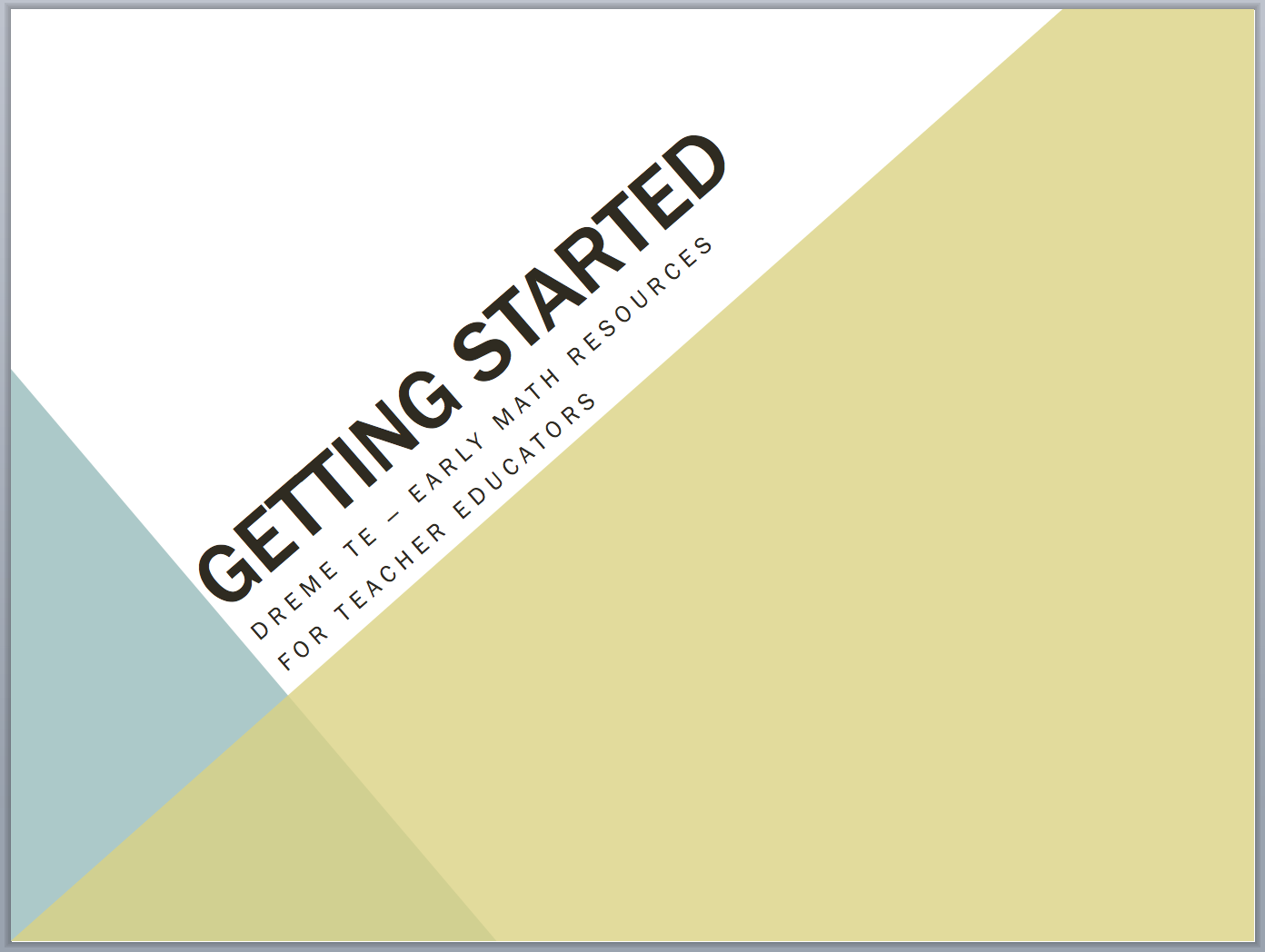A brief account of formative assessment approaches that help you learn what young children know about operations.
Assessing Operations: How Do We Know?
In Overview of Formative Assessments, a variety of formative assessment techniques were described. This handout describes ways of assessing children’s knowledge specifically about operations. But what do we want to know about children’s operations? Operations are about operating on (and working in) the world mathematically: joining, adding, comparing, dividing, multiplying, separating, and taking away sets or parts of sets.
 Children naturally engage in these activities every day. They split up sets of cars, ask peers for more dinosaurs, share goldfish crackers, and figure out how many wheels are needed for two trains (if one needs four, then two need eight!). But one thing is for sure, they rarely think of these activities as addition, subtraction, multiplication, or division. They think they are solving problems—and we should think that way, too.
Children naturally engage in these activities every day. They split up sets of cars, ask peers for more dinosaurs, share goldfish crackers, and figure out how many wheels are needed for two trains (if one needs four, then two need eight!). But one thing is for sure, they rarely think of these activities as addition, subtraction, multiplication, or division. They think they are solving problems—and we should think that way, too.
Another thing to keep in mind is that thinking about a progression in operations, in particular, a progression where addition comes first, followed by subtraction and then multiplication and division, can take us down the wrong track. One of children’s earliest operations may be fair-sharing with a set of four objects: “Two for me and two for you!” Instead of attempting to ensure that children master addition before attempting any other operations, think about what activities and actions are meaningful to children, regardless of the operation. If children need to solve a problem that involves allocating columns to a bridge, support them in this multiplication problem by talking it out. “Hmmm, let’s see, how many bridge sections do you have? Aha, and how many columns are you using for this section? Hmmm, so how could we figure out how many columns you need for these three sections?”
The “How do we know?” subtitle on this handout refers to ways of assessing what children know and understand about operations. We need to know what they know so that we can intentionally support children with appropriately challenging activities and environments. Draw on your observations of children engaging in their everyday activities as well as during intentional teaching activities and interactions.
This handout provides tips on assessing young children’s operations knowledge. Using these tips in conjunction with the handout on general formative assessments will provide you with knowledge of both assessment techniques and operations development, and will set you well on your way to effectively monitoring your children’s mathematical development
Mathematical Vocabulary
- Listen for informal language around operations. Children may not use academic language to describe their thinking: We need all the wheels for all the cars!
- Listen for children’s use of operations-oriented vocabulary: more, less, share, fair, my car needs four wheels, matching.
- Ask questions using operations-oriented vocabulary ("How many more do you need? What would make it fair? How many altogether? How many are left over?")
Storybooks and Operations
- Use storybooks to ask operations-oriented questions ("If three hippos were in the house and four more joined them, how many hippos would then be in the house?")
- Ask children to tell a storybook story in their own words ("Can you tell me what this story is about?")
Counting Collections, and Addition and Subtraction
- Using Counting Collections (see description of activity here), have children count and record a set of objects. After they’ve counted and recorded the quantity of their set, ask them to draw a small number of additional objects from a central pile and record those additional objects on their Counting Collections Recording Sheet (download here). Ask how many objects they have altogether. Ask them how they figured that out.
- Using Counting Collections (see description of activity here), have children count and record a set of objects. After they’ve counted and recorded the quantity of their set, ask them to remove a small number of objects from their collection and record what they’ve taken away on their Counting Collections Recording Sheet (download here). Ask how many objects they have left. Ask them how they figured that out.
Mental Addition and Subtraction with 1 more/less
- In a small or whole group setting, ask children to add one (or other appropriate number)") to a number that you state ("My number is four, your number is one more than four. What is your number?")
- In a small or whole group setting, ask children to subtract one (or other appropriate number) to a number that you state ("My number is four, your number is one less than four. What is your number?")
Real-life and Story Problems
- Use objects or a flannel/magnetic board to assess children’s understanding ("Miranda is coaching soccer and needs five balls, but some are missing! Robert, can you tell me how many she still needs?")
- Pose real life addition and subtraction problems ("Allegra, we need enough trays for all of the children at those two tables. Can you tell me how many we need altogether?")
- Observe children’s problem-solving skills around fair-sharing and various events at snack time or lunch.
- Ask questions about multiplicative reasoning ("I see you have a busy tire repair shop! If you need to fix one tire on each car that’s waiting in line, how many tires would you need to fix?")
Finger Plays
- In whole or small group, ask children to show a specific quantity with two hands: ("Show me six fingers.") Then ask a child to tell you how they solved the problem. Ask if anyone else solved it differently. Continue with different quantities.
- In whole or small group, ask children to model familiar nursery rhymes and songs related to operations (such as Five Little Ducks, Five Little Monkeys Jumping on the Bed, Five Little Bees; Five Little Speckled Frogs) with their fingers.
Check out our Formative Assessment resources across our other content modules:
- Counting (It Counts)
- Spatial Relations (Shaping Up)
- Patterns & Algebra (Spotting Patterns)
- Measurement & Data (Measurement & Data)



